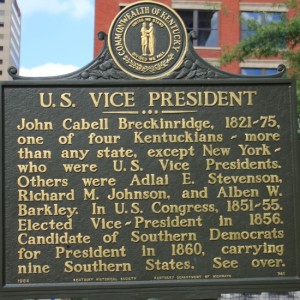Click here for June 2013 monthly summaries.
Click here for entire listing of archived COA Monthly Summaries of Published Decisions.
Here are some of the tort, insurance and civil decisions of interest dealing with:
- the trial court’s jurisdiction over frivolous appeals and attorney fees ten days after judgment entered;
- UIM issues as to PIP and liability set offs and identifying the UIM carrier as a party;
- UIM statute of limitations does not mirror the tort statute of limitations; a bullying case addressing issues of policy, superceding and intervening causes;
- tortious interference case and new trial motion.
I. APPEALS
Walters v. Smith
2011-CA-001026 07/05/2013 2013 WL 3369308 (DR Pending)
Opinion by Chief Judge Acree; Judges Lambert and Moore concurred.
The Court of Appeals reversed and remanded an order requiring appellants to pay appellees attorneys’ fees for previously having filed an allegedly frivolous appeal. The Court held that: (1) the circuit court lacked jurisdiction to enter the order, having lost jurisdiction ten days after it entered the judgment from which the first appeal was taken; (2) the circuit court lacked the authority to sanction parties for frivolous appeals, CR 73.02(4) having granted that authority exclusively to the appellate court which, in that first appeal, was the Court of Appeals; and (3) appellees waived the right to assert that the first appeal was frivolous when they failed to make a proper motion pursuant to CR 76.34, in the first appeal, for the relief provided by CR 73.02(4).
VIII. INSURANCE
Progressive Max Ins. Co. v. Jamison
2011-CA-001127 07/19/2013 2013 WL 3778135
Opinion by Chief Judge Acree; Judges Moore and Thompson concurred.
In an appeal and cross-appeal following a trial to resolve a defendant’s claim for underinsured motorist benefits, the Court of Appeals held that the trial court committed reversible error by failing to apply two statutory setoffs to the jury’s damages award: (1) a reduction for basic reparations benefits paid pursuant to KRS 304.39-060(2)(a), and (2) a reduction representing the tortfeasor’s liability insurance policy limits pursuant to KRS 304.39-320. The Court further held that once fault was established against the tortfeasor and the underinsured-motorist claim was resolved, the defendant insurance company was entitled to collect on its properly-preserved subrogation cross-claim. As to the cross-appeal, the Court held that the trial court’s ruling preventing the plaintiff from specifically identifying the defendant insurance company as his underinsured-motorist carrier did not offend the mandates set forth in Earle v. Cobb, 156 S.W.3d 257 (Ky. 2005) since the insurer was identified as a real party in interest. Likewise, there was no error in the trial court’s decision to restrict the parties from discussing insurance or underinsured motorist benefits during trial.
Riggs v. State Farm Mut. Auto. Ins. Co.
2012-CA-000354 07/19/2013 2013 WL 3778143
Opinion by Chief Judge Acree; Judge Taylor concurred; Judge VanMeter dissented and filed a separate opinion.
The Court of Appeals reversed and remanded the circuit court’s entry of summary judgment against appellant as to appellant’s underinsured-motorist claim. The circuit court had found the claim to be contractually time-barred. In reversing, the Court declared unreasonable, and therefore invalid, a two-year contractual limitation provision requiring any action for underinsured motorist benefits to be brought within two years from the date of injury or the last basic reparations benefit paid, whichever is later. While the contractual limitation did not require the injured party to sue his or her UIM carrier prior to suing the tortfeasor, the limitation had the possibility of compelling an insured to file a protective suit against his or her carrier before the two years elapsed, even though a prior suit against the tortfeasor might not yet have yielded discovery that would disclose any need to pursue UIM coverage. Absent a reasonable contractual provision providing otherwise, the fifteen-year limitations period set forth in KRS 413.090(2) controlled.
IX. NEGLIGENCE
Patton v. Bickford
2012-CA-000598 07/19/2013 2013 WL 3778148
Opinion by Judge VanMeter; Judges Clayton and Lambert concurred.
In a wrongful death action against middle school teachers, a principal, and superintendents, in their individual capacities, alleging negligence in failing to supervise students at school and to comply with anti-bullying policies and procedures (which resulted in a student being subjected to bullying and eventually taking his own life), the Court of Appeals held that the circuit court properly granted summary judgment in favor of the defendants. The Court first held that the defendants were not entitled to summary judgment on the grounds of qualified official immunity since their duty of care with respect to bullying incidents was set forth in the school’s student handbook and their duties were partly ministerial in nature. However, the Court held that summary judgment was nonetheless appropriate because the student’s act of suicide in his home was an intervening and superceding act that cut off any potential liability. The record did not reflect that anyone was aware that the student was suicidal, especially considering that his friends and parents were shocked by the incident. Additionally, when the student committed suicide in his home he was not in the direct care of the defendants
X. NEW TRIAL MOTION
2012-CA-000383 07/05/2013 2013 WL 3369421 (DR Pending)
Opinion by Judge Lambert; Judges Clayton and VanMeter concurred.
The Court of Appeals affirmed a jury verdict and judgment dismissing appellants’ complaint in a dispute between siblings related to whether three of the siblings exerted undue influence over their mother to affect transfers of real and personal property. The Court held that appellants failed to establish jury bias or misconduct; that the circuit court properly declined appellants’ request to inform the jury of the shift in the burden of proof; that appellants were not entitled to present their argument last during closing arguments; that the circuit court properly declined to instruct the jury on the tort of tortious interference with an inheritance due to appellants’ failure to make a prima facie case (the Court did not reach the question of whether this tort has been recognized and adopted in Kentucky); that the circuit court properly admitted a letter written by the parties’ mother prior to her death; and that the circuit court properly denied appellants’ motion for a directed verdict.
FOR THE ENTIRE SUMMARY OF ALL PUBLISHED DECISIONS FOR THIS MONTH, GO BELOW THE FOLD!
[gview file=”http://apps.courts.ky.gov/Appeals/Opinions/July2013.pdf”]


